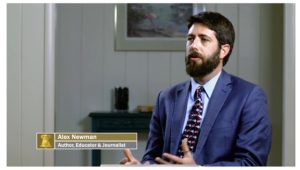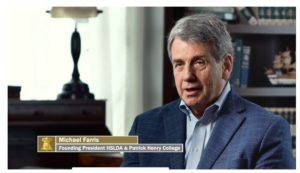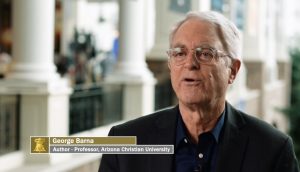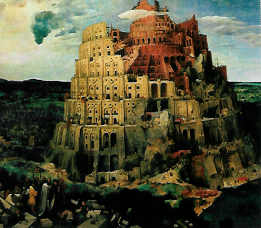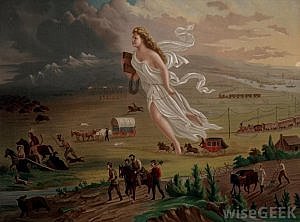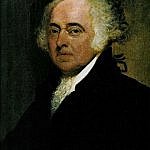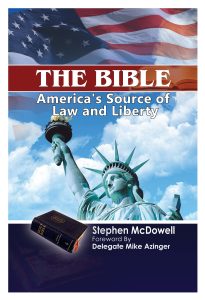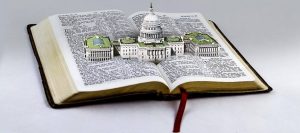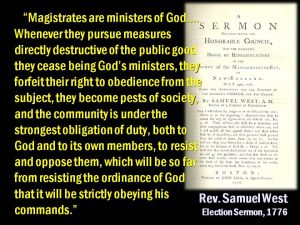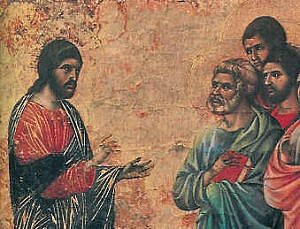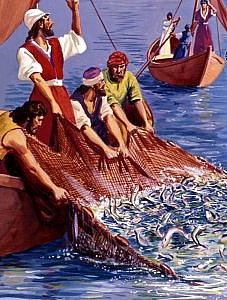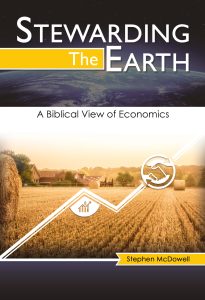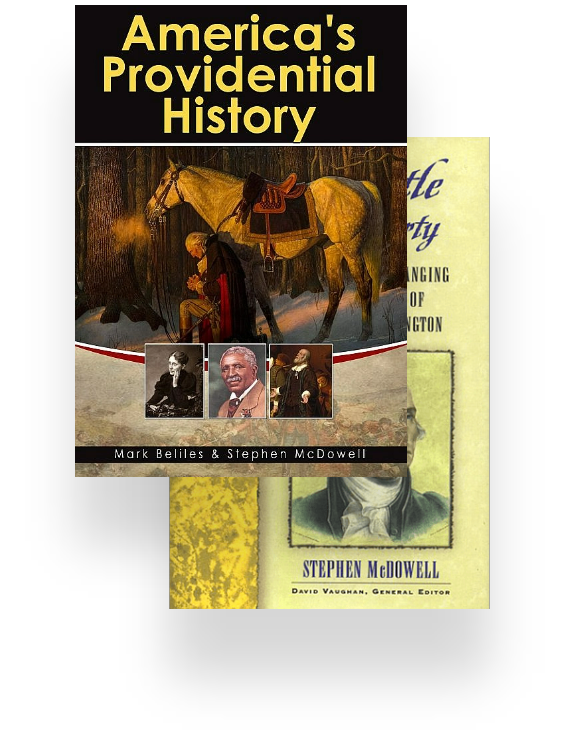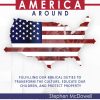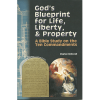Principles and Policies for Economic Flourishing
Stephen McDowell
While teaching a group of current and future government leaders in Latin America, I was asked, “What specific policies would you recommend that we implement for the economic well-being of the nation?” I was in the middle of teaching them a seminar on biblical economics, where I was presenting a number of foundational principles necessary for personal and national prosperity. Before giving them a number of policies, I reiterated some of those foundational biblical principles, pointing out that the policies will work because they are an application of the biblical principles.
Following are a brief summary of some of the principles and policies I related to them. There are certainly others that should be understood and applied, but these are of first importance.
Underlying these principles and policies is the understanding that God desires His people to flourish. God’s original commission to man was for him to take dominion over the earth by producing needed goods and services that contribute to universal flourishing. Applying His principles revealed in the Bible produce prosperity.
Foundational Free Market Principles
Private property is a fundamental component of prosperous, advancing economies. The concept of private property is taught throughout the Scriptures, beginning with the creation of man and God’s original commission for him to rule over the earth as presented in Genesis 1.
God created all things (all property), and thus He owns it all. Scripture says, “The earth is the Lord’s, and all its fullness. The world and those who dwell therein” (Psalm 24:1). While God owns everything, He has given to man stewardship of the earth – “the earth He has given to the sons of men” (Psalm 115:16). It is man’s responsibility to care for God’s creation (Gen. 1:28). Owning property gives the family and individuals power to fulfill their mission to take dominion and extend His Kingdom in the earth.
A few Scriptures affirming private property rights follow:
- The Eighth Commandment to not steal implies private property rights (Ex. 20:15).
- You shall not covet your neighbor’s property (Ex. 20:17) implies individual ownership of property.
- Families in Israel were given land that they owned (Joshua 12-31).
- “You shall not move your neighbor’s boundary mark” or property boundaries (Deut. 19:14; Deut. 27:17).
- Restitution is to be made by the thief for property stolen (Ex. 22:1 ff; Prov. 6:30-31).
- Jeremiah bought a field from his cousin. He signed a deed with witnesses after paying money for it (Jer. 32:1-16). We see private ownership and the free market here.
- The Parable of Laborers in the Vineyard (Matt. 20:1-16) teaches that the landowner could do what he wished with his own property: “Is it not lawful for me to do what I wish with my own things?” (Matt. 20:15)
- The early church in Jerusalem voluntarily sold their property to help those in need.
- Peter affirmed the ownership and individual control of the property of Ananias and Sapphira: “while it remained, was it not your own? And after it was sold, was it not in your own control?” (Acts 5:4). It is clear that the early church did not require or practice communistic or socialistic ownership of property. Shared property was voluntary, and private property was still maintained as individuals continued to own homes after selling some of their property (Acts 12:12). This selling of excess property to meet local needs is only mentioned to have taken place in the church in Jerusalem, not anywhere else, likely due to local historical events that had been revealed to the church through prophecy (Jesus warned them that Jerusalem would fall, Luke 21, after which property became useless).
- “Your own vine and fig tree” (1 Kings 4:25; Micah 4:4; Zech. 3:10) is an often used biblical phrase depicting how owning property and resources signify an idyllic condition.
According to the Bible, property is primarily to be owned by the family (and individuals who represent the family). The family is the primary institution to take dominion (Gen. 1), and to do this it must own and control land and property.
- Individual Enterprise
The Bible teaches that you are to benefit from the fruit of your labor. The Apostle Paul says, “The plowman ought to plow in hope … of sharing the crops” (1 Cor. 9:9-10). The profit motive encourages greater labor, which produces more wealth.
Paul writes, “If a man will not work, he shall not eat” (1 Thess. 3:10). Conversely, the harder you work, the more you should benefit materially with more to eat, et cetera.
The Bible says much about the importance of laboring: “Six days you shall labor and do all your work” (Ex. 20:9); labor to gain wealth (Pr. 13:11); there is profit in labor (Prov. 14:23); the diligent will be made rich (Pr. 13:4). Labor is the title deed to property (both external and internal).
When there is liberty for men to benefit from the fruit of their labor, then men will invent more, produce more, exchange more, and use new products.
- Free market
The free market is based upon the idea that men are to be free under God to pursue their calling and provide for themselves and their families. As they do this they will produce goods and services that they should be able to freely offer to others at a price of their choosing.
The free market by its nature encourages men to serve the wants and the desires of their fellow man, voluntarily. At the end of free market transactions, both parties say “thank you,” because both parties benefit from the exchange.
- Limited government
Civil government is a divine institution with an important function,[1] but it is to be limited. The power it exercises should only be enough to enable it to fulfill its biblical purpose. Any more and it becomes oppressive and tyrannical. Civil government should not usurp the authority of God or the other divine institutions He established (i.e., family and church).
Jesus taught that we are to render to God the things that are God’s, which is an argument for limited government. The concept of Christian self-government is another strong point supporting limited government because the size of civil government declines as self-government increases (and self-government increases where the Gospel is implanted in the culture). Government is not to control individual conscience. It is not to hinder biblical worship, morality, or action. History shows that centralized power leads to loss of Christian liberty in all spheres of life (religious, political, economic, and civil). That God desires men to live free is another support for small government.
Private property rights are a strong argument for limited government. God created man as His steward (delegated ruler) over the earth (Gen. 1:26-30; Ps. 8:6-8; 1 Cor. 6:3). Man has authority and freedom to manage all the resources God has given him to fulfill his calling (Mt. 25:14-18, 27; Lk. 19:13, 23). The larger the state becomes, the less private property individuals possess (through state ownership and control, as well as increased taxes) and, hence, they have less ability to fulfill the Creation Mandate.[2]
Tyrannical governments will take from man what God wants man to have (see 1 Sam. 8:10-18). The consequence of government taking what does not belong to it is enslavement of the people. If government controls all property it controls all life. It thus robs humans of expressing the image of God and living in the great liberty that God intended for man from the beginning. Statism turns a nation into a giant prison.
Policies for Prosperity
Government should act to preserve private property, individual enterprise, and the free market, while seeking to limit its power and jurisdiction. The following governmental policies stem from the above four (and other[3]) biblical economic principles.
- Reduce taxes
The amount of taxes collected by governments around the world today is too large. Most taxes are unjust and unbiblical (like graduated income taxes, inheritance taxes, and property taxes) and much too high. History has shown that lower taxes lead to more economic growth. Lower taxes mean individuals keep more of their own money. With more money, they can grow their businesses, increasing jobs and wages.
- Reduce government spending (and hence the size of government)
All governments not only tax too much, but they also spend too much. Most actually spend more than they collect in taxes. Deficit spending leads to many problems. The most effective way to reduce the size and spending of government is to restrict it to its limited biblical purpose of protecting the law-abiding citizen and punishing the law-breakers.
A few ways to reduce government spending include:

- Eliminate the welfare state by following biblical guidelines for overcoming poverty, which include replacing welfare with work requirements, eliminating minimum wage, and encouraging the private sector to assist the poor and needy.
- Do not borrow money or create fiat money.
- Do not spend more money than that received via legitimate taxes.
- Do not have government stimulus programs or bailouts that give away tax dollars to inefficient businesses.
- Encourage developing infrastructure with private capital. Modernizing the infrastructure of a nation is important for economic growth. The most important infrastructure needs are private — factories, warehouses, research centers, office complexes, laboratories, and so on. Tax cuts and reduced regulations can encourage the private sector to develop these. There is also much infrastructure that benefits the public but should be operated privately, like airplanes and airports, pipelines, electric grids, communications, satellites, and so forth.
- Reduce regulations
Unnecessary and burdensome regulations stifle economic productivity. Regulations should be kept to a minimum and should only apply to keeping the market free and fair. Excessive government regulations have turned America (and many nations) into a permission society. In 1950, one in 20 occupations required a government license. Today it is one in three. Meeting the requirements imposed by myriads of governmental agencies has sucked the life and finances out of just about every business in the country. Plus, many of these regulations violate the property rights of individuals.
The power to regulate (and also to tax) is the power to destroy; hence, such power must be kept to a bare minimum.
- Develop natural resources
God created an abundance of renewable and other natural resources to enable man to fulfill the cultural or dominion mandate. Our task is to discover and develop the resources that exist within our own nations so as to meet our national needs (not being dependent upon other nations who may not have our best interest in mind) and have extra to sell to others. These resources include food, minerals, timber, metals, medicines, manufactured items, etc., but most especially energy resources like oil, gas, and coal, since energy runs industry and economic progress.
- Secure patent and copyright laws
Patent and copyright laws are forms of property because the product of man’s brain is property just as is the product of his hands. These laws protect and reward labor, both physical and mental. These will lead to the development of new and better tools, as well as greater labor, all of which produce economic growth. Patent and copyright laws helped propel the many new inventions that originated in the United States after our independence.
- Privatize social security and healthcare
It is not the role of civil government to provide health, education, or welfare to citizens. The Bible gives this responsibility primarily to the family, and secondarily to the church and private sector. The family can do it more effectively and efficiently. If government seeks to provide these things it will not only take lots of your money (with more spent on bureaucrats running the programs than on your needs) but it will also take much of your liberty.
- Privatize education
Parents have the right and responsibility to govern the education of their children. As with health and welfare, the private sector will provide education — in knowledge, skills, and character — much more effectively and efficiently than civil government.
- Encourage free and fair trade
Trade (in its broad meaning of conducting business locally, nationally, and internationally) is an important means of bringing universal flourishing to a nation. Government can encourage trade (and some of the above policies do this), but it should only be involved to assure that trade is free and fair.
- Institute biblical immigration policies
Allowing an uncontrolled flood of immigrants into a nation will stifle and possibly destroy the economy. While having an attitude that welcomes the stranger and alien, a nation’s immigration policy should embrace biblical ideas including: Immigrants must understand and agree to live by the law of the land (i.e., the national and state constitutions) before admittance; immigrants should display self-government, good character, hard work, and a readiness to operate in accordance with principles of property, individual enterprise, and the free market. In other words, they must demonstrate the qualities of good citizens.
- Protect inalienable rights
Governments exist to protect the God-given inalienable rights of citizens and provide an environment of peace and liberty.[4] These things are necessary for the effective implementation of the above policies.
—
These policies will produce economic growth and lift all citizens to a higher economic status. They will produce a bigger economic pie so that everyone gets a bigger piece, including civil government via increased tax revenues while maintaining low tax rates.

Socialistic policies keep the pie small. Welfare states promise provision for citizens but only have a small pie to divide among everyone, and with increased government control of the economy, scarcity increases and the pie shrinks, leading to more poverty. Producing a larger pie causes everyone to flourish. The poor are lifted out of poverty. Only productivity will overcome poverty. In addition, productivity will lift everyone’s income level.
The above policies will create more jobs, expand the workforce, and raise incomes, all of which contribute to a larger national GDP, that is, a larger pie. These also incentivize creativity and invention, which will produce new and better tools, which multiply man’s material welfare. All the while, they enhance liberty, not just economic liberty, but also personal, religious, and civil liberty.
In summary, biblical economic and governmental principles produce good governmental policies which produce wealth and universal flourishing.
[1] Simply stated, the purpose of civil government is to protect the life, liberty, and property of citizens. See Stephen McDowell, Ruling Over the Earth, for a more detailed look at the purpose of civil government.
[2] Each of these biblical arguments for limited government are examined in more detail with much Scriptural support in Ruling Over the Earth.
[3] See Stephen McDowell, The Economy from a Biblical Perspective, for an expanded look at these and other principles.
[4] See McDowell, Ruling Over the Earth, for an examination of some of these biblical rights.




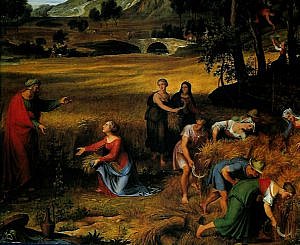

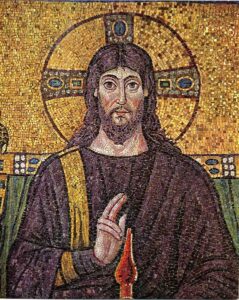
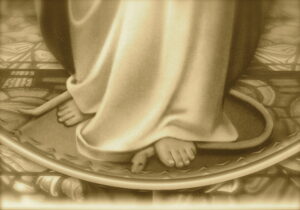
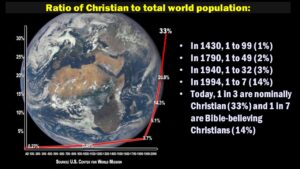
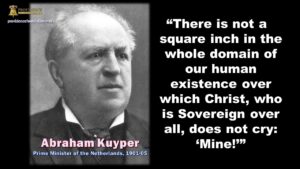 ts the victorious kingdom of God on the earth in history. Many Scriptures speak of the triumphant church: Luke 10; Rom. 16:20; Rev. 12:9, 11; Col. 2:15; Heb. 2:14; 1 John 3:8; Rom. 4:13; Matt. 5:5; Matt. 28:18-20; 2 Cor. 2:14; 2 Tim. 2:12; Rev. 5:10; Rom. 5:17; 1 Cor. 3:21; Rev. 20:4; Eph. 1:22-23.
ts the victorious kingdom of God on the earth in history. Many Scriptures speak of the triumphant church: Luke 10; Rom. 16:20; Rev. 12:9, 11; Col. 2:15; Heb. 2:14; 1 John 3:8; Rom. 4:13; Matt. 5:5; Matt. 28:18-20; 2 Cor. 2:14; 2 Tim. 2:12; Rev. 5:10; Rom. 5:17; 1 Cor. 3:21; Rev. 20:4; Eph. 1:22-23.